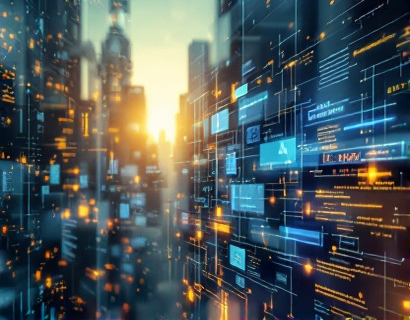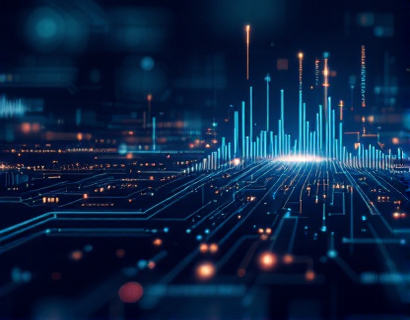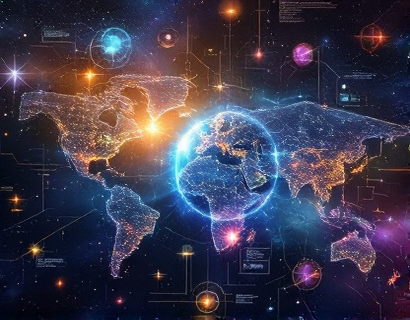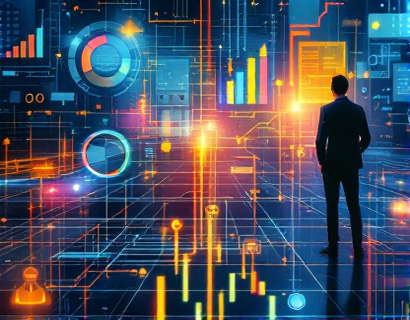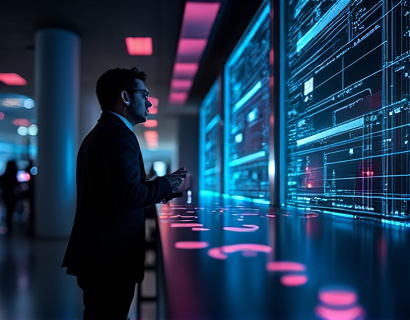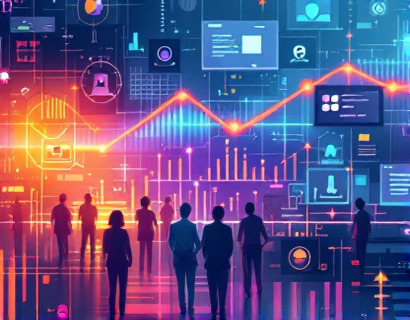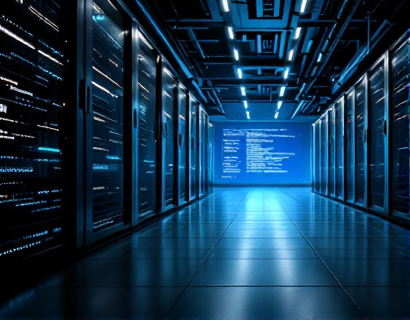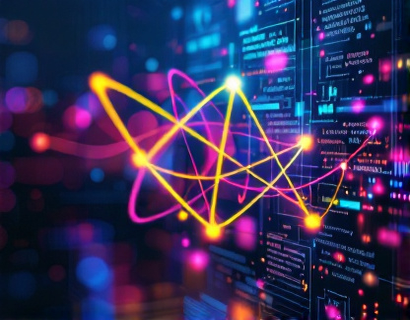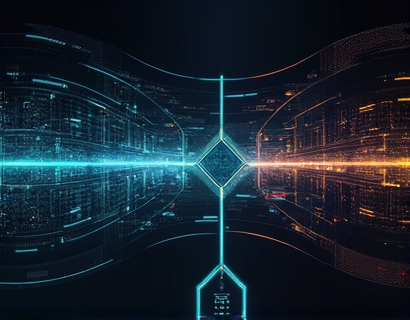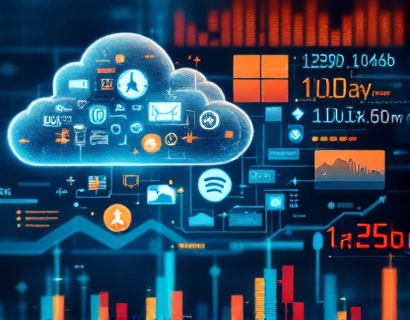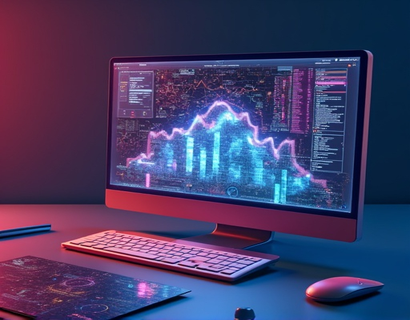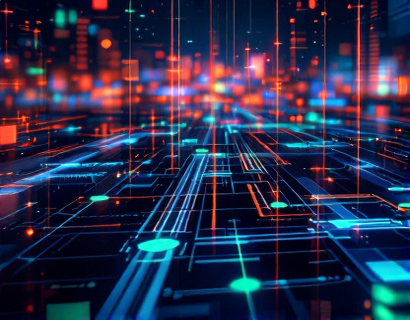Maximizing Ucosystem Engagement: Harnessing AI and Crypto for Enhanced Digital Experiences
The digital landscape is rapidly evolving, driven by the convergence of artificial intelligence (AI) and blockchain technology. This fusion is not just a technological advancement but a transformative shift in how we interact with digital platforms and services. For tech-savvy innovators and early adopters, this convergence opens up a world of possibilities, offering unparalleled access to advanced applications and services. This article delves into the ways AI and crypto are redefining digital engagement, providing deep insights and secure connections to cutting-edge tools, and setting a new standard for interaction in the crypto and AI space.
Understanding the Synergy of AI and Crypto
The integration of AI and blockchain technology creates a synergy that enhances the functionality and security of digital platforms. AI brings intelligence, automation, and personalization to the table, while blockchain ensures transparency, security, and decentralization. Together, they form a powerful combination that can revolutionize various sectors, from finance and healthcare to entertainment and beyond.
AI in Ucosystem Engagement
AI plays a crucial role in enhancing user engagement within the Ucosystem. By leveraging machine learning algorithms, platforms can analyze vast amounts of user data to provide personalized experiences. This personalization extends to content recommendation, tailored notifications, and customized interfaces that adapt to individual user preferences and behaviors. For instance, an AI-driven Ucosystem can predict the type of content a user is likely to engage with based on their past interactions, thereby increasing the likelihood of sustained engagement.
Moreover, AI-powered chatbots and virtual assistants can offer real-time support and guidance, answering queries and providing assistance without the need for human intervention. This not only improves user satisfaction but also reduces operational costs for service providers. The ability of AI to learn and improve over time means that these interactions become more natural and efficient, further enhancing the user experience.
Blockchain for Secure and Decentralized Engagement
Blockchain technology underpins the security and trust inherent in the Ucosystem. By using a decentralized ledger, blockchain ensures that transactions and interactions are transparent, immutable, and secure. This is particularly important in a digital environment where data breaches and fraud are significant concerns. Users can have confidence that their data is protected and that their interactions are genuine and verifiable.
Smart contracts, a key feature of blockchain, automate and enforce agreements without the need for intermediaries. In the context of the Ucosystem, smart contracts can facilitate seamless transactions, manage access rights, and ensure compliance with predefined rules. For example, a user might earn tokens for participating in certain activities, and these tokens can be automatically distributed and tracked through smart contracts, eliminating the need for manual verification.
Enhanced Security and Privacy
Security and privacy are paramount in the digital age, and the combination of AI and blockchain addresses these concerns effectively. AI algorithms can detect and mitigate potential security threats in real-time, identifying anomalies and suspicious activities that might indicate a breach. This proactive approach to security helps maintain the integrity of the Ucosystem and builds trust among users.
Blockchain's inherent security features, such as cryptographic hashing and consensus mechanisms, further fortify the platform. Each transaction is encrypted and linked to the previous one, creating a chain that is nearly impossible to alter without detection. This level of security is crucial for sensitive operations, including financial transactions, identity verification, and data sharing.
Decentralized Identity Management
One of the most significant advantages of combining AI and blockchain is the potential for decentralized identity management. Traditional identity systems are centralized, making them vulnerable to hacking and misuse. Blockchain-based identity solutions allow users to control their own digital identities, storing credentials and personal data in a secure, decentralized manner.
AI can enhance this process by verifying identities through biometric data and behavioral patterns, ensuring that only authorized users access their accounts. This not only improves security but also provides a seamless and user-friendly experience. Users can authenticate themselves quickly and securely, without the need for cumbersome passwords or multiple verification steps.
Tokenization and Incentivization
Tokenization, a concept deeply rooted in blockchain technology, offers a innovative way to incentivize user engagement. By issuing tokens that represent value within the Ucosystem, platforms can motivate users to participate actively. These tokens can be used to access premium content, vote on platform decisions, or even traded for other assets.
AI can optimize the tokenization process by analyzing user behavior and preferences to determine the most effective incentives. For example, AI might identify that certain types of content or rewards are more appealing to specific user segments, allowing for targeted and personalized incentivization. This data-driven approach ensures that tokens are used efficiently, maximizing user engagement and satisfaction.
Community Building and Governance
The intersection of AI and blockchain also facilitates the creation of vibrant communities within the Ucosystem. Decentralized governance models, powered by blockchain, allow users to have a say in the direction and development of the platform. AI can enhance this process by analyzing community feedback and sentiment, providing insights that inform decision-making.
For instance, AI-driven analytics can help identify the most pressing issues and popular suggestions within the community, ensuring that governance decisions are aligned with user needs and preferences. This democratic approach not only fosters a sense of ownership and loyalty among users but also leads to more innovative and user-centric solutions.
Scalability and Interoperability
As the Ucosystem grows, scalability and interoperability become critical challenges. AI and blockchain together offer solutions to these issues. AI can optimize network performance, managing resources efficiently and ensuring smooth operations even as the user base expands. Machine learning algorithms can predict and mitigate potential bottlenecks, maintaining a seamless user experience.
Blockchain's interoperability features enable different platforms and services to communicate and operate seamlessly. Cross-chain protocols and decentralized exchanges (DEXs) facilitate the transfer of assets and data across various blockchain networks, creating a more integrated and cohesive ecosystem. AI can further enhance this interoperability by translating and standardizing data formats, ensuring compatibility and smooth interactions.
Future Prospects and Challenges
The future of Ucosystem engagement through AI and blockchain is promising, but it is not without challenges. One of the primary challenges is the need for widespread adoption and understanding of these technologies. Educating users and developers about the benefits and functionalities of AI and blockchain is essential for driving growth and innovation.
Another challenge is the regulatory landscape, which is still evolving in the crypto and AI space. Navigating compliance and ensuring legal adherence is crucial for the sustainable development of Ucosystem platforms. Collaboration between technologists, policymakers, and industry stakeholders is necessary to create a favorable environment for innovation.
Despite these challenges, the potential benefits are substantial. The fusion of AI and blockchain has the power to create more secure, personalized, and engaging digital experiences. As technology continues to advance, the Ucosystem will become an increasingly integral part of our digital lives, offering new opportunities and transforming the way we interact online.




